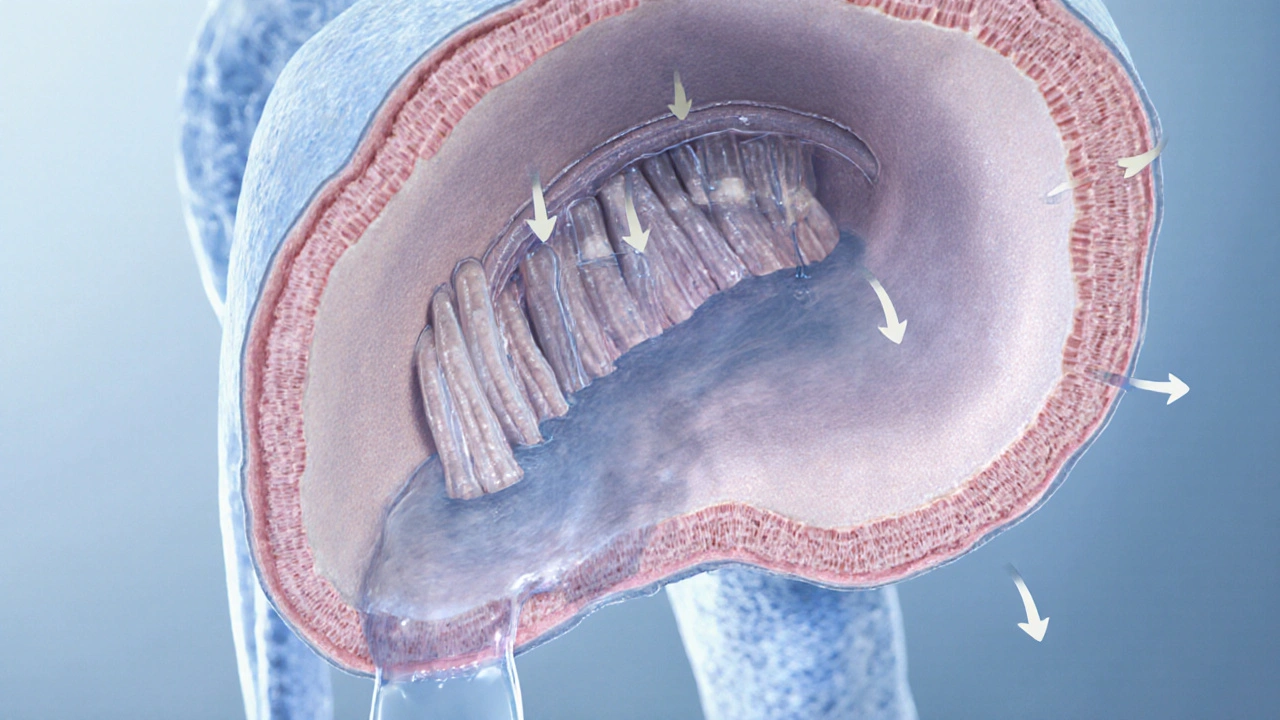Gut Health: Simple Ways to Feel Better From the Inside Out
Ever wonder why you feel sluggish after a big meal or why occasional stomach aches creep up? The answer often lies in your gut. Your digestive system isn’t just a tube for food; it’s a busy ecosystem that affects energy, mood, and immunity. The good news? You can nurture it with everyday choices without fancy diets or expensive supplements.
What Your Gut Needs
First, think of your gut as a garden. It thrives on diverse, nutrient‑rich plants (the foods you eat) and needs the right amount of water and sunlight (hydration and movement). Fiber is the main soil conditioner – it feeds the friendly bacteria that keep the gut lining strong. Whole grains, beans, fruits, and vegetables all deliver this fiber.
Second, the friendly microbes themselves matter. A balanced gut microbiome contains many species of bacteria that help break down food, produce vitamins, and keep harmful germs in check. Probiotic foods like yogurt, kefir, sauerkraut, and kimchi drop live cultures straight into the garden, giving it a boost.
Third, don’t forget the role of fats and protein. Healthy fats from avocados, olive oil, and nuts help absorb fat‑soluble vitamins and keep inflammation low. Protein provides the building blocks for gut tissue, but choose lean sources – fish, poultry, legumes – to avoid overloading the system with hard‑to‑digest animal fats.
Simple Steps to Boost Gut Health
1. Eat three servings of fiber‑rich foods daily. Aim for a mix of soluble fiber (oats, apples) and insoluble fiber (broccoli, nuts). This combo feeds different bacteria and keeps bowel movements regular.
2. Add a probiotic snack each day. A cup of kefir, a spoonful of fermented veggies, or a plain yogurt can introduce billions of good bacteria without extra sugar.
3. Stay hydrated. Water moves fiber through the gut. If you’re drinking less than eight glasses, try a glass with each meal.
4. Move your body. Light walking after meals helps food travel and stimulates the gut’s natural rhythm. Even a ten‑minute stroll can make a difference.
5. Limit processed sugars and artificial sweeteners. These feed bad bacteria and can cause gas, bloating, and cravings.
6. Get enough sleep. Poor sleep disrupts the gut‑brain connection and can lead to an imbalanced microbiome. Aim for seven to nine hours of restful sleep.
7. Consider a low‑dose prebiotic supplement. If you struggle to get enough fiber, a small dose of inulin or chicory root can give your gut microbes a quick boost.
Putting these habits together creates a gut that digests well, absorbs nutrients efficiently, and keeps you feeling energetic. You don’t need to overhaul your diet overnight – start with one or two changes, notice how you feel, and add more as you go.
Remember, a healthy gut is a lifelong project, not a quick fix. The more consistently you feed your gut with fiber, probiotics, water, and movement, the more resilient it becomes. Soon you’ll notice fewer mid‑day crashes, calmer stomachs, and maybe even a brighter mood. Your gut is listening – give it what it needs and watch your overall health improve.


